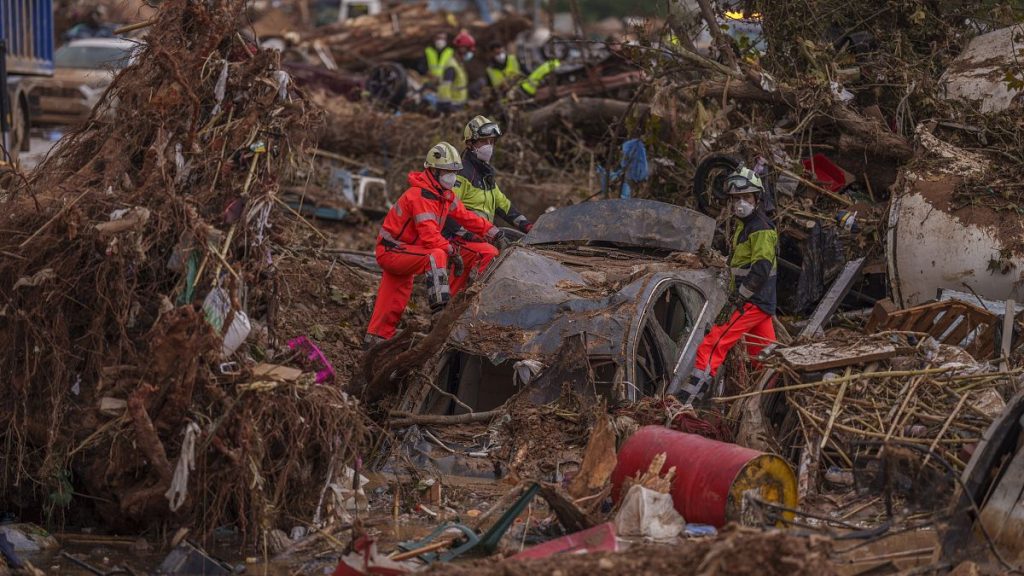The catastrophic flooding in the eastern region of Valencia, Spain began on 29 October, with torrential rain causing widespread devastation. The region received a year’s worth of rain in just eight hours, leading to at least 222 deaths. Despite growing anger over the response to the disaster, authorities in Valencia have ruled out any imminent resignations from the regional government. Tens of thousands of people staged a protest accusing the government of sending out public alerts too slowly, demanding the resignation of regional president Carlos Mazón. The protest turned violent as riot police clashed with the demonstrators, resulting in injuries to both police officers and civilians.
The regional government of Valencia has faced criticism for its handling of the catastrophe, with many calling for officials to take responsibility for the crisis. However, officials have stated that no one will be stepping down as Spain grapples with its worst natural disaster in decades. Vice-president Susana Camarero emphasized that the government will not abandon the victims and will continue to support those affected by the flooding. Mazón, the regional president, has promised to provide answers when he appears in parliament, but has been accused of deflecting blame onto the central government led by Prime Minister Pedro Sánchez. The central government maintains that the disaster response fell under the jurisdiction of regional authorities as it was classified as a level two emergency.
In addition to the ongoing cleanup and relief efforts, Spain faces the threat of heavy rains in the coming days due to a mass of cold air from north Europe. The national meteorological agency AEMET has issued an alert warning of possible heavy rains that could lead to a new DANA, a type of storm system associated with extreme weather. The Balearic Islands and the northern side of the Spanish Mediterranean coast are expected to experience strong and persistent rainfall from Tuesday onwards. The full extent of the damage caused by the flooding is not yet known, but it is estimated that the Spain’s Consortium for Insurance Compensation will pay out at least €3.5 billion in compensation for insured losses related to the disaster.
The reaction to the catastrophic flooding in Valencia has included not only protests against the regional government, but also instances of violence targeting political leaders and authorities. Spain’s royals, Prime Minister Sánchez, and other government officials were met with angry crowds throwing mud during their visits to affected areas. Despite the challenges and criticisms faced by officials, the government remains committed to supporting the victims of the flooding and addressing the needs of those affected by the disaster. The ongoing cleanup efforts and impending threat of further heavy rains highlight the continued impact of the catastrophic flooding on the region and the need for a coordinated and effective response to the ongoing crisis.
As Spain grapples with the aftermath of the catastrophic flooding in Valencia, questions remain about the preparedness and response of authorities to such natural disasters. The level of devastation caused by the flooding underscores the importance of effective disaster planning and response measures to mitigate the impact of future events. The protests, violence, and calls for accountability highlight the frustration and anger felt by many in the region over the handling of the crisis. Moving forward, it will be crucial for officials at all levels of government to work together to support those affected by the flooding, address the challenges posed by the ongoing disaster, and strengthen resilience to future natural disasters in the region.


